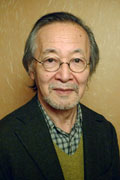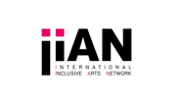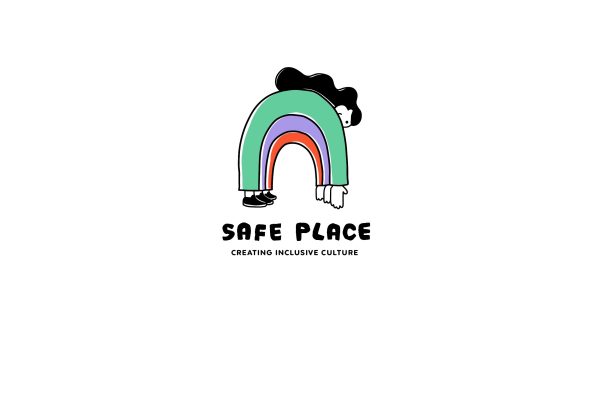Manon van de Water
The End of the World as We Know It and Talk to Me, comments and Quotes
Generation Porn:
Cultural Differences: Sexuality as part of our Identity
- India: sex is not talked about, but culture is highly sexualized
- Mexico: plays about issues like child abuse, lack of productions about sex as part of life
- Germany: problems with peer pressure: not talked about that it is OK to say NO
- Israel and USA: TYA depends on schools as buyers—parents, teachers, administrators=> Sex is Taboo
Looking for Freedom
“Theatre offers something else: it is important that children step in a different world and use their imagination”
Difference between China and Europe:
- China often large multi-theatrical productions
- Europe: small, simpler
Let’s bring the West and the East together
Environment
- Trashedy confronts everybody’s role
- West biggest trasher of all: how does non-west think of that? Well, they take the habits over.
- Agitprop: does theatre need to be more politically motivated in environmental issues?
Fragments and Monologues
- To what extend is language necessary?
- What is a theatrical “text”
- If language is central it becomes a different kind of writing
- Lessons we learn from making theatre for the very young
Open Endings
- The Ethics of “Bad Endings”
- Is it there for a reason??? Killing in 2:14 did not fit the piece
- Tragedy is different: Catastrophe is
– Catharsis: purgation
– Strophe: phrase
The story goes on . . . .
Media
- Is use of media overused?
- Is it sexy?
- Is it needed?
- Is a camera on stage a cheap way to replace traditional sets?
Everything Happens Simultaneously
- Use of multimedia or screen does not necessarily mean it is simultaneous . . .
- Children can do more simultaneously because they are more used to look at things like that . . .
- BUT: can they process it deeply??? Do we expect they get each of the elements in a deep way?
Generations in Dialogue
- Cultural differences—tradition, roots, more important in some countries versus other countries
- Swaziland is not Ireland !!!
What Do You Know About Us?
“Should TYA mirror Children’s life? I think you have to know it and deal with it because they know best”
Children and Adults on Stage
- Can Adults Act a Child???
- Children can give us the complexity of their stories=gift from them
- People on stage as in society=inclusion
- Some performances are impossible with professional actors (Raw)
- BUT when we “train” children do we take away their childhood?
- Who decides? Teenagers decide themselves but younger children?
More than a Spectator: The Audience Plays Along
Ethical Issues, responsibility of the artist: difference children and teens
Stand Your Ground: Teens have to be identified beforehand so they are not coerced and will not be personally affected after the show.
Me and My Body
- Changing roles flipping gender can give a space for youth to come out. It is important for all kids to see.
- AND: what would happen if we all go out, undress, and come back naked???????
IT IS ALL ABOUT CONTEXT!!
The End
“ We do not know how to save the world—we all die in the end.
But on the way there are many changes.
We need to deal with the world.”
Asaya Fujita
“I have heard the discussions for a last couple of days with tremendous interest. It was interesting that we could see the current situation of the culture for children and theatre transparently through each one of opinion supported by their own experiences. And having heard all the opinions, it was obvious that the relationships between the participants were changing as they spoke. There were confirmations of similarities and differences. The confirmation of similarity creates a sense of security and the confirmation of difference creates a sense of fretfulness by desire to know the reason for difference. And it was for me like watching a play to see the changes and so much fun. It was a magnificent collaboration performance with the first act of 3 and a half hours performed on the 24th and the second act of 2 and a half hours performed on the 25th. And the title was ASSITEJ’s tomorrow or Tomorrow of the World of TYA.
Meanwhile this is not unusual case to see a moderator speaking too much, being conscious too much of settling a conversation or a participant who cannot say a word. But after all, we could say it was a fruitful time, and perhaps it would be better only if we had more time.
In addition, if I can be a bit greedier, I would’ve liked to have some questions regarding the relations between education and theatre, having acknowledged the role of theatre accomplished for a child’s growth.
Also, I’d like to have an opportunity to discuss about the theatrical traditions original of each country. As a director from a country where there is a heritage, that is the nature of traditional theatre, handed down blindly today after 100 years, holding a history neglecting the tradition of theatre, which wronged the theatre’s history itself when a modern theatre is imported.
And to conclude, there are some people who I personally want to hear their impressions from. They are the participants from North Korea. On the first day they were expressionless but as the time passed, they were changing and at the end we saw smiles on their faces. And it was the participants from South Korea, supporting them with interpretation. It was beautiful to see it. Yvette, the President, invited them to come to the Congress in South Africa and I invited them to participate the Asia Fes, which we are currently planning. If these invitations are actualized, we’ll have the beautiful Epilogue of this magnificent collaboration play.”
Stefan Fischer-Fels
 “The End of the World as we know it” / “Talk to me – I’ll be your audience”
“The End of the World as we know it” / “Talk to me – I’ll be your audience”
- Walking around, I tried to link these 2 issues to the Assitej “motto” of “ONE STEP BEYOND”: Looking for thougths beyond the routines, maybe interesting for next Gathering in Birmingham July 2016:
- Generation Porn : Which strategies do we have in TYA to protest or comment our sexualized society? The experience was expressed, that in plays like “trashedy” or “bodybild” there were convoncing moments by authentic performers, who were facing their issue personally, honestly, without taboos, including their doubts, hopes and hopelessness.
- Global Issues : I am tired to see in theatre: to look inside myself, talk about me and my family. I am part of a society, a global society, a society destroying themselves. I want to talk about (my) responsibility.
- What do we know about children: How can we create more Space and Time in the theater dayly work to find out deeper what moves children? Answer: This is a question of your own priorities.
- Me and my body / Can theatre change the world: Some spoke about a conservative rollback in europe (and elsewhere too) of censorship and self-censorship. How can we fight against this movement? The experience was expressed that every artist has to go his artistic way following his conviction + trying hard to transfer, argue, fight for his artistic way. This is not the easy way. A whole economic system has other interests.
- Media on stage: The live-event “theater” will never die. But, if we like it or not, Digitalisation will change the life of the young generation, so will change the theater and its reception. We have to analyse that. We have to do more research about that.
- Images of childhood: Which indications do we have to define the contemporary image of childhood in our societies? Look at Medias, school organisation, parent behaviour, time frames, state ideologies etc. – Is there an “official image”, is there a “common sense”, is there a hidden “practice”?
- Talk to me! How talk to Audience?): We are talking all the time about “participation” and “interactive theater”. But in our society: Are we ready to let children participate? Do we want to hear their voice? participation is a categorie of “democracy”. Do we let children participate in our “democratic system”?
- Children and adults on stage): There are many questions about the production “Rauw”. One way to look at it could be: It is telling us about a new equal relationship between adults and children (not anymore the issue of “authorities against rightless children”): We should try to create new “dramaturgies” according to contemporary images of childhood.It is in our hands to finds answers to these questions. Lets get “one step beyond” with it – an meet in Birmingham to share our researches!
A short guide to improving accessibility for Visually Impaired People at Outdoor Events
Karen Poley from Bicycle Ballet has written a short guide to share some of the findings and experiences of working with Visually Impaired People (VIPs) as participants in arts projects and as potential audience members at outdoor arts events.
We’ve popped in on our resource page under the ‘ACCESSIBLE EVENTS’ section …. to have a look, follow the link!








